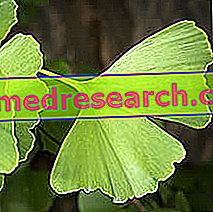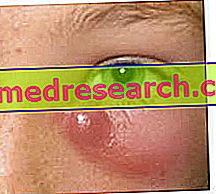Watch the video
X Watch the video on youtube
Scientific name
Ginkgo biloba
Family
Ginkgoaceae
Origin
Asia
Used Parts
Ginkgo Biloba leaves are used as a drug
Chemical constituents
- Ginkgolides (A, B, C);
- Flavonoid glucosides (kampferol, quercetin, isoramnetin, coumaric acid, catechins, proanthocyanidins);
- Flavones (apigenin, luteolin);
- flavanols;
- Polysaccharides;
- alcohols;
- Ketones;
- aldehydes;
- Phenols.
Ginkgo Biloba in Herbal Medicine: Properties of Ginkgo Biloba
Ginkgo Biloba can be used for the treatment of various disorders, including: mental deterioration, atherosclerosis and its manifestations (prevention and treatment), arteriopathies obliterans of the lower limbs, cerebrovasculopathies, ischemic heart disease, Raynaud's disease, vasculitis, vertebrobasilar insufficiency, tinnitus and vertigo syndromes in general, diabetic microangiopathy, arterial hypertension and retinopathy. Ginkgo Biloba is also used in the prevention of smoking and venous thrombosis.
However, although widespread, not all the aforementioned applications of ginkgo have been officially approved. In fact, the use of this plant has obtained official approval only for the treatment of vertigo, tinnitus and intermittent claudication, and to improve memory and cognitive function in patients over 50 years of age.
Biological activity
Numerous properties are attributed to ginkgo, among which, of course, the anti-inflammatory and antioxidant properties stand out.
More in detail, the anti-inflammatory action attributed to this plant is attributable to the ginkgolides contained in it.
Some studies have shown that ginkgolide B is able to inhibit the activity of PAF (platelet activation factor) through the antagonization of its receptor. The platelet activation factor plays an important role in inflammatory processes and changes in vascular permeability.
The antioxidant activity of ginkgo, on the other hand, is attributable to flavonoids and terpene derivatives (ginkgolides and sesquiterpene lactones) contained in it. In fact, these molecules - in addition to preventing lipid peroxidation - also exert an action of "scavengers" of free radicals (free radical scavenger).
Moreover, some studies have shown that the ginkgo would be able to exert an antioxidant action also directly at the level of the liver, where - acting on the hepatic microsomal system P450 - it seems to be able to reduce the production of free radicals.
The properties of the ginkgo have aroused a lot of interest and it is for this reason that numerous researches have been conducted on the active principles contained in it.
Among these, a relatively recent study (2001) stands out that highlighted how ginkgo extract is able to increase the efficacy and tolerability of 5-fluorouracil (or 5-FU) in colon cancer patients -resistance refractory to treatment with only 5-FU.
Another research, on the other hand, has shown that ginkgo - if given as an adjunctive treatment to haloperidol-based therapy in schizophrenic patients - is able to increase the effectiveness of haloperidol itself, thus favoring an improvement in the symptoms of schizophrenia.
However, despite the encouraging results, these therapeutic applications of ginkgo have not yet been approved.
Ginkgo to improve cognitive functions and memory
Numerous studies have been conducted on the ability of ginkgo to improve cognitive functions and memory.
More in detail, from these studies it emerged that ginkgo is able to improve cognitive functions - and above all memory - only in patients over the age of 50 suffering from memory disorders, while it does not influence cognitive abilities in any way of young patients aged between 20 and 40 years.
The cognitive and mnemonic improvement exercised by ginkgo is due to the flavonoids and terpenes it contains, and to their marked antioxidant and anti-inflammatory activity.
The usual recommended dose to increase cognitive functions and, in particular, memory is 120 mg / day of ginkgo extract standardized to 24% in flavonoids and 6% in terpenic derivatives, to be taken in two or three fractionated administrations in the arc of the day.
Ginkgo against tinnitus and vertigo of vascular origin
As mentioned, ginkgo can be used to treat tinnitus and dizzy syndromes of vascular origin.
As for vertigo, a study showed that ginkgo extract is able to reduce the intensity, duration and frequency of vertigo attacks. While, as regards the treatment of tinnitus, the debate on the utility of ginkgo is still open due to the conflicting results obtained by the various studies carried out.
However, the use of this plant has been officially approved for the treatment of the aforementioned disorders.
As an indication, to treat the vertigo and tinnitus mentioned above, the usually recommended dose is 120 mg of ginkgo extract per day, to be taken in 2-3 divided doses. This dose refers to a standardized extract at 24% in flavonoids and 6% in terpene derivatives.
Ginkgo to counteract intermittent claudication
Intermittent claudication is a walking disorder, often a symptom of peripheral arterial occlusive disease. Several studies have shown that taking ginkgo extracts can help reduce the pain that patients suffering from this disorder experience during walking.
For these reasons, ginkgo is considered the main herbal remedy to counteract intermittent claudication.
Also in this case, the dose of standardized extract (24% in flavonoids and 6% in terpenic derivatives) which is usually recommended is 120 mg per day in divided doses.
Ginkgo in folk medicine and homeopathy
In Chinese folk medicine, ginkgo was used to treat asthma, angina pectoris, tinnitus (or tinnitus) and also as a remedy against hypertonia.
Ginkgo is also used in homeopathic medicine. It can be found in the form of granules with indications for the treatment of tonsillitis and headache, in particular, for the treatment of left temporal headache.
The amount of remedy to be taken can vary depending on the homeopathic dilution used.
Contraindications
Avoid taking Ginkgo biloba in patients with coagulation disorders, in patients with convulsive disorders and in cases of proven hypersensitivity to one or more components.
The use of ginkgo is also contraindicated in pregnancy and during lactation.
Even patients who have to undergo surgery should not take ginkgo, as this plant can promote the onset of bleeding during the surgery itself.
Warnings
It is very important to remember that both the fruits and the seeds of Ginkgo biloba are toxic and, for this reason, they must not be ingested under any circumstances. Furthermore, contact of the skin with the pulp of the ginkgo fruit may cause contact dermatitis.
Pharmacological Interactions
- possible interactions with acetyl-salicylic acid, warfarin, acetaminophen, caffeine and ergotamine, but also with garlic and / or willow-based herbal preparations;
- possible interaction with other plants with anti-aggregation, pentoxifylline, ticlopidine and thrombolytic activity, with an increased risk of bleeding;
- I-MAO: possible drug enhancement;
- papaverine: enhancement of the drug's effects on cavernous bodies;
- thiazides: described a case of arterial hypertension in a patient who was taking thiazide diuretics and at the same time Ginkgo biloba;
- enzyme inducer on some cytochromes;
- potentiates the following drugs: nifedipine, diltiazem, digoxin, antiplatelet agents, papaverine, trazodone;
- reduces the effect of omeprazole, thiazides, nicardipine, haloperidol, hypoglycemic agents both insulin and oral antidiabetics;
- avoid the association with melilot, garlic and plants containing salicylates;
- avoid combining Ginkgo Biloba with platelet aggregation and anticoagulants, pentoxifylline, ticlopidine, thrombolytics: possible increased risk of bleeding.


